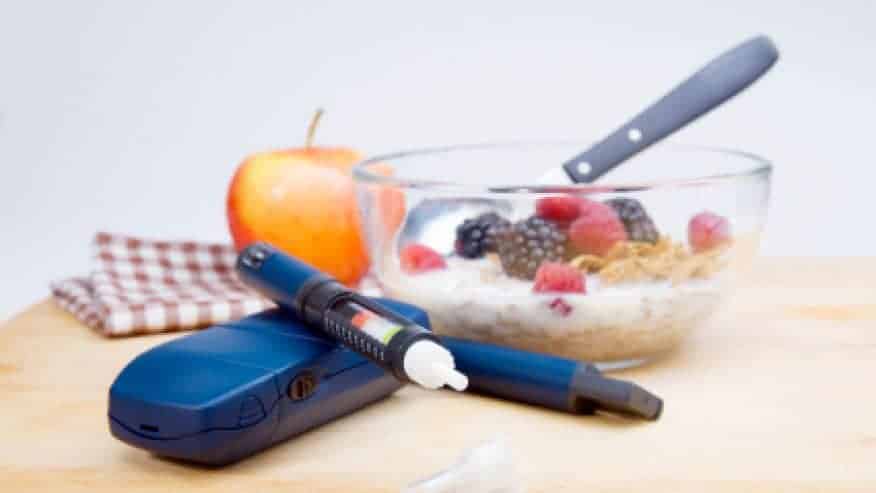
Eating just 2 large meals a day, consisting of breakfast and lunch, could be the best way for people with type 2 diabetes to help control their weight and their blood sugar, new research suggests.
Often it is been recommended that people with type 2 diabetes eat 5 or 6 small meals a day, But in Western societies at least, it turns out that snacks are not usually healthy, they are high in sugar and fat. So a regimen of frequent eating hasn’t resulted in better control.
In the crossover trial, published online May 15 in Diabetologia, when patients were eating a large breakfast and lunch but skipping dinner, they lost more weight on average and had less hepatic fat and lower blood glucose, fasting insulin, and fasting glucagon than those who were consuming 6 smaller meals.
Two Meals per Day Regimen Lowered Glucagon
The research involved 29 men and 25 women who were being treated with oral type 2 diabetes drugs, aged 30 to 70 years, with body mass index (BMI) between 27 and 50 kg/m2 and HbA1c in the range of 6% to 11.8%.
One group of 27 started on the first regimen, six small meals a day for 12 weeks, while the remaining 27 had 2 large meals, breakfast and lunch, each day for 12 weeks. They then switched to the other regimen. The diet in both groups had the same macronutrient and calorie content.
Weight loss was more pronounced in those on the 2-large-meal regimen, who shed 1.4 kg more, on average, than those eating 6 smaller portions. Fasting plasma glucose and C-peptide levels also fell in both groups, but again, these reductions were both more pronounced when just 2 meals a day were being eaten. And fasting plasma glucagon also fell with the regimen of 2 large meals a day, whereas it increased among those consuming 6 small meals each day.
These results suggest that, for type 2 diabetic patients on a calorie-restricted diet, eating larger breakfasts and lunches may be more beneficial than 6 smaller meals during the day, Novel therapeutic strategies should incorporate not only the energy and macronutrient content but also the frequency and timing of food.
Dr Kahleová stressed to Medscape Medical News that perhaps a more practical approach should be to emphasize to type 2 diabetes patients that “3 meals a day is enough; breakfast should be the largest meal of the day, and dinner may be light.”
COURTESY: MEDSCAPE – For the latest medical news, clinical trial coverage, drug updates, journal articles, CME activities & more!





